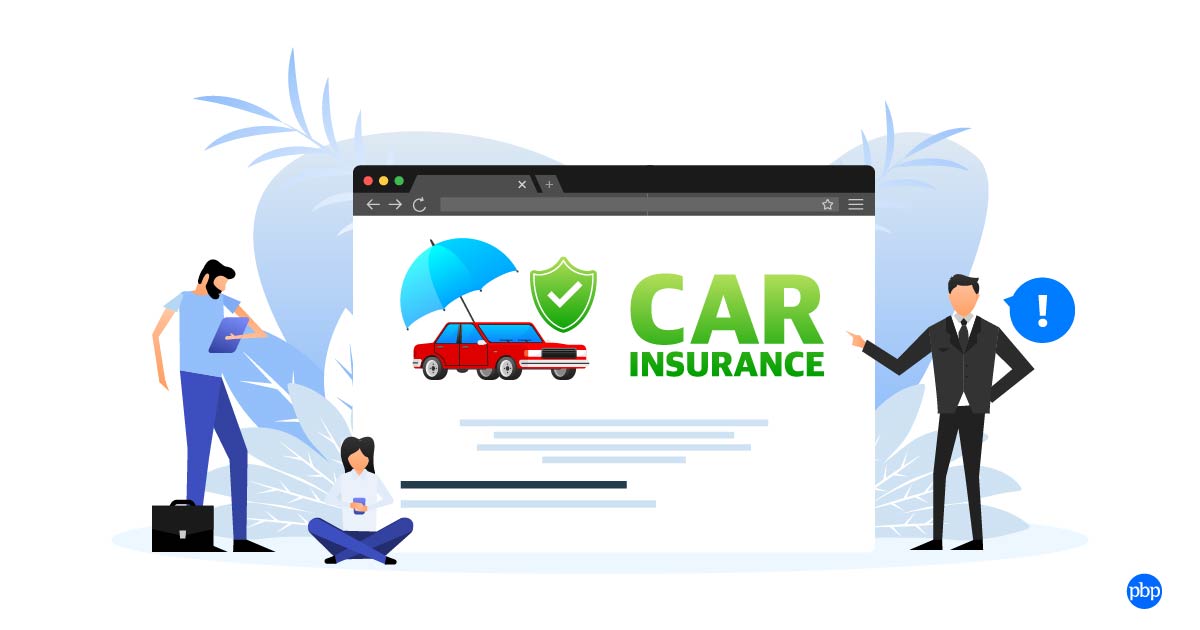Renewing a car insurance policy is a must for everyone as it ensures protection from legal and financial troubles that might arise from accidents or other mishaps. Although, the process of renewing car insurance has become much simpler with the rise of online services. People still make some common mistakes while renewing car insurance.
In this blog, we will discuss the mistakes to avoid while making car insurance renewals.
Whether you are looking for general car insurance renewal or specific plans like Honda car insurance renewal, this guide will help you understand the process effectively.
1. Not doing Timely Renewals
One of the major mistakes is failing to renew a car insurance policy on time. We all are aware that driving without an insurance policy is illegal and can result in hefty fines and even imprisonment. Additionally, if your policy lapses, you risk losing the uninterrupted coverage that safeguards you from financial loss.
Tip- So, if you receive any intimation regarding the renewal of the policy, it is good to renew your policy at the earliest.
Also Read: Importance of Renewing Car Insurance Policy
2. Neglecting the Policy Details
Many of us make this mistake when renewing a car insurance policy online, many people renew their existing policy without reviewing the details. This can be a costly mistake as your insurance needs might have changed over time.
Tip: Must review your current policy details, including the coverage, add-ons, and Insured Declared Value (IDV).
Also Read: How to Make Car Insurance Payments Online
3. Not Utilising No Claim Bonus (NCB)
If you have not made any claims during the previous policy period, you are eligible for a No Claim Bonus (NCB). Many people forget to utilize this benefit during renewal, which could significantly reduce their premium. This is a discount (between 15 to 50%) that you will get on your premium upon renewal, and the more claim-free years you have, the higher your discount will be!
Tip: Ensure that your NCB is correctly applied during the renewal process. It’s a reward for your safe driving, and it can save you a considerable amount of money on your premium.
4. Not choosing the right IDV
Insured declared value is the current value of your car. The maximum amount insurance companies will pay in case the car is completely damaged or lost. For you, the car might be precious but the truth is as it gets older, its value decreases. It is known as depreciation, and the rate of depreciation can reduce your car’s IDV over time.
Now, since a lot of insurance providers let you choose your IDV (usually you can change it from the current value of your car by plus or minus 15%), you need to be careful to selecting the right IDV.
Tip: The higher the IDV, the more your premium will be. But if it is too low, you might get a lower premium while not fully covering the value of your car.
5. Not choosing voluntarily deductible wisely
A deductible is the amount you pay out of pocket before your insurance company steps in to cover the rest of the claim. While there’s a compulsory deductible, you also have the option to choose a higher amount as a voluntary deductible.
Tip: By selecting a higher voluntary deductible, you can lower your premium. However, keep in mind that if you need to make a claim, you’ll have to cover that higher deductible amount yourself!
6. Payments for premiums are delayed
Failing to make timely premium payments can lead to various issues for policyholders. That's why it's crucial to choose a coverage plan that meets all your needs. Ensure the plan is also within your budget; otherwise, it could undermine the benefits it’s supposed to provide.
Tip: You can always set reminders to make timely premium payments.
7. Selecting irrelevant add-ons
While add-ons can enhance your policy, not all of them offer real value. Some merely inflate your premium without significantly reducing risk. It’s essential to assess your specific needs and requirements to ensure you’re making the most of any add-ons. Opting for unnecessary add-ons can lead to a hefty premium increase, whereas skipping them altogether may leave you with inadequate coverage.
Tip: Make sure to carefully evaluate your insurance needs, before making a decision.
Bottom Line
It is essential to fully understand its terms and conditions to maximize the benefits of a car insurance policy. With the help of the support team of the insurer, you can resolve any queries you may have regarding your car insurance policy. The best way to buy an ideal car insurance policy is to compare some policies before selecting one.
FAQs on Car Insurance Renewals
How do you calculate the insured declared value of the car?
The Insured Declared Value (IDV) of your car is the maximum amount you can receive in case of a total loss or theft. It's calculated using the car's ex-showroom price, depreciation, and the cost of any accessories.
Can I renew my car insurance without an inspection?
If your policy has not lapsed for too long, you may be eligible for a car insurance renewal online without an inspection. However, to avoid any unexpected repair costs from loss or damage, it’s advisable not to drive your car until your policy renewal is finalized.
What is the grace period for car insurance renewal?
The grace period for the insurance plan may vary from 3 days to 30 days as per the terms and conditions of the policy issued by the insurance company. The customer must check the car insurance grace period at the time of buying the insurance policy.
Can I renew my car insurance early?
Yes, you can renew your car insurance policy early. Many insurers allow early renewal, allowing you to lock in your coverage and avoid any potential lapses. Renewing early also ensures that there’s no gap in protection, and you may even be eligible for discounts or promotions.









